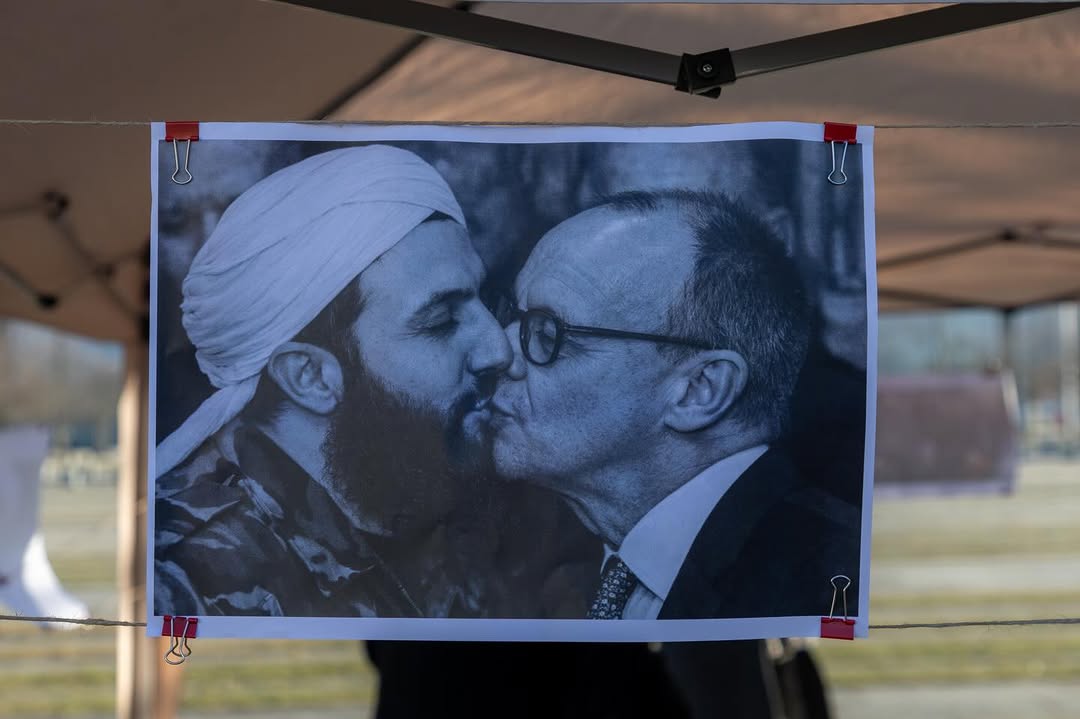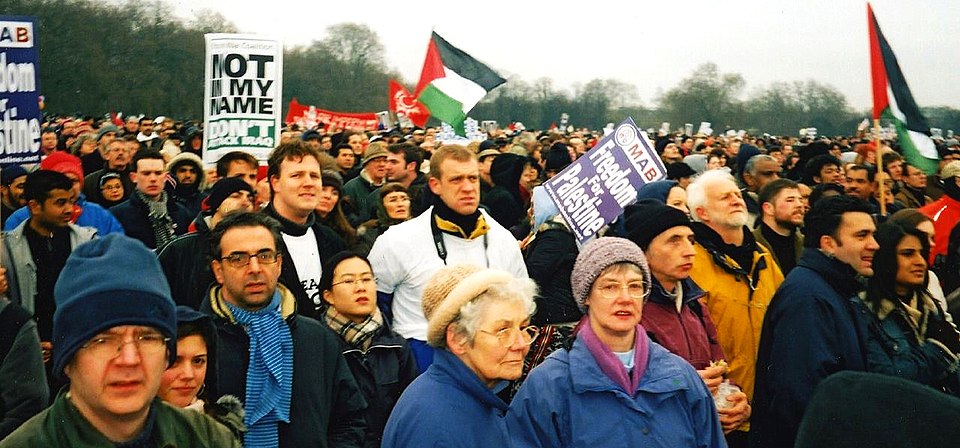I’m on a tram. I see a guy buying a ticket, but suddenly a ticket inspector grabs him. The inspector asks the guy to show his ticket, but it’s still in the machine. Then the inspector hits the guy in the face and demands a fine. At the next stop, he drags the guy out of the tram and 4 ticket inspectors start beating him up. Would you react?
Most people would only step in if it’s really serious. But when is something serious enough to make the average person react? It’s when someone is punished unfairly and way too harshly for what they’ve done. Here on the tram that is the case; the punishment is unfair and too harsh. When we talk about forced mobilization and prison for refusing to join army, we should see it as the nasty beating of a whole nation, but we don’t.
Most people don’t see forced mobilization as a crime because the government shifts how it presents its values to the people. When the military beats up some guy who doesn’t want to join the army, the government tells people through official media that the soldiers are just following orders, and that guy is to blame for not fulfilling his duty to defend his country. The government tells us things aren’t so simple, and therefore good citizens watch a fight between 4 soldiers and a civilian, and see it as law enforcement instead of a crime. That’s why people just keep going their own ways.
During wartime, the government won’t tell you that it’s wrong to force someone to risk their life against their will.
The government won’t tell you that being a soldier is a profession, not a punishment. Yes, in Ukraine today, getting a draft notice is a punishment.
The government won’t tell you about the unexpected power that the military and those who are not subjected to mobilization gain over those who are vulnerable to it. This creates room for manipulation. This is where businesses are built.
Of course, the government won’t tell you that mobilization should only be voluntary, and the army should only be under contract.
The government won’t tell you this because they need you, cheaply and in large numbers.
One British politician once said that war is not killing, but suicide. I would add that it’s forced suicide. A French politician said that war is too important to be left to the military. Was he joking? I don’t think so.
But they are politicians, and I’m just a regular guy. Speaking as a regular guy, I want to say: State, I’m tired of being flexible. Your desire to see flexibility in me is breaking me, instead of benefiting both of us. Yesterday you wanted me to be a businessman, a factory worker, or an office clerk, bringing you taxes, and now you want to turn me into a shooter and a guardian of your territories. Who will you want me to be tomorrow? I’m tired, State. Your persistence makes me not only forget your protection but also start protecting myself from you.
State, why do you think I only have two purposes: to kill and to work? And why are you so confident that I can easily switch between them?
Society, if you know that men can be taken out of Ukraine for money, despite the border crossing ban, then why do you donate money for weapons that bring death, but not on saving us?
Doesn’t the very existence of war indicate that a large number of people among us don’t love life but suffer from it, and that’s where they gather the energy needed to sustain the fire of war?
So maybe war doesn’t end with peaceful negotiations? Maybe war continues as long as there is one person dissatisfied with life left? How many more will emerge later when they stop shooting?
I love walking in cemeteries. Most people enjoy reading the news and don’t understand my love for cemeteries. Interestingly, what scares most people in a cemetery scares me in the news. Essentially, we’re both repulsed by the same phenomenon, just find it in different places.
My love for cemeteries has given me the desire to control my own death. My sadness outweighs the will of the state. Ukrainian officials may think differently, but fortunately, the sky is higher than state borders.
Recently in Ukraine, plans to mobilize 500 thousand more men were released. If the war continues at the same pace, soon there will be no one left to come to the cemetery for them. Perhaps we should remember our dead to appreciate our lives more? With this in mind, I went to the cemetery by tram today and witnessed a horrific beating.
When I was beaten by a soldier in a Ukrainian army uniform in front of a passive crowd for refusing to take the draft notice, the Ukrainian army made it clear to me that it not only wouldn’t protect me but also posed an immediate danger to me.
It’s a suspicious thing that while you can volunteer to go to war, you cannot voluntarily leave it. Attempting to do so results in imprisonment. This alone makes me think that the state and the individual do not make an equal contribution to the fight. Therefore, today it’s important not only to speak out against forced mobilization but also to help demobilize those who want it.
The way I was beaten by the military in the early days of the war in Ukraine, I describe in my novel THE MINING BOYS. It amuses me when people are outraged by my book because it simply depicts my ordinary life, meaning they are outraged by my life itself. It amuses me when people say I’m wrong to fight against forced mobilization because they are essentially saying I would be better off dead.
I’ve seen many guys in Ukraine forcibly taken to the military enlistment office. I was one of them. Women and the elderly can intervene with little consequence but usually choose not to. The story of a guy being beaten for a tram ticket somehow outrages many more people than the lawlessness of military enlistment office staff. In both situations, people suffer for no reason, with the only difference being that in one case, this guy was beaten, and in the other, thousands of moreu lose their lives. So why are you so outraged by the damn ticket?
When the ticket inspectors were beating up the guy at the bus stop, a huge raven flew past the bus with a 20-Hryvnia note in its beak. Nobody paid any attention to it. I’m writing this with one goal in mind: to make you pay attention to what’s happening.
This piece is a part of a series, The Mining Boy Notes, published on Mondays and authored by Ilya Kharkow, a writer from Ukraine. For more information about Ilya, see his website. You can support his work by buying him a coffee.




